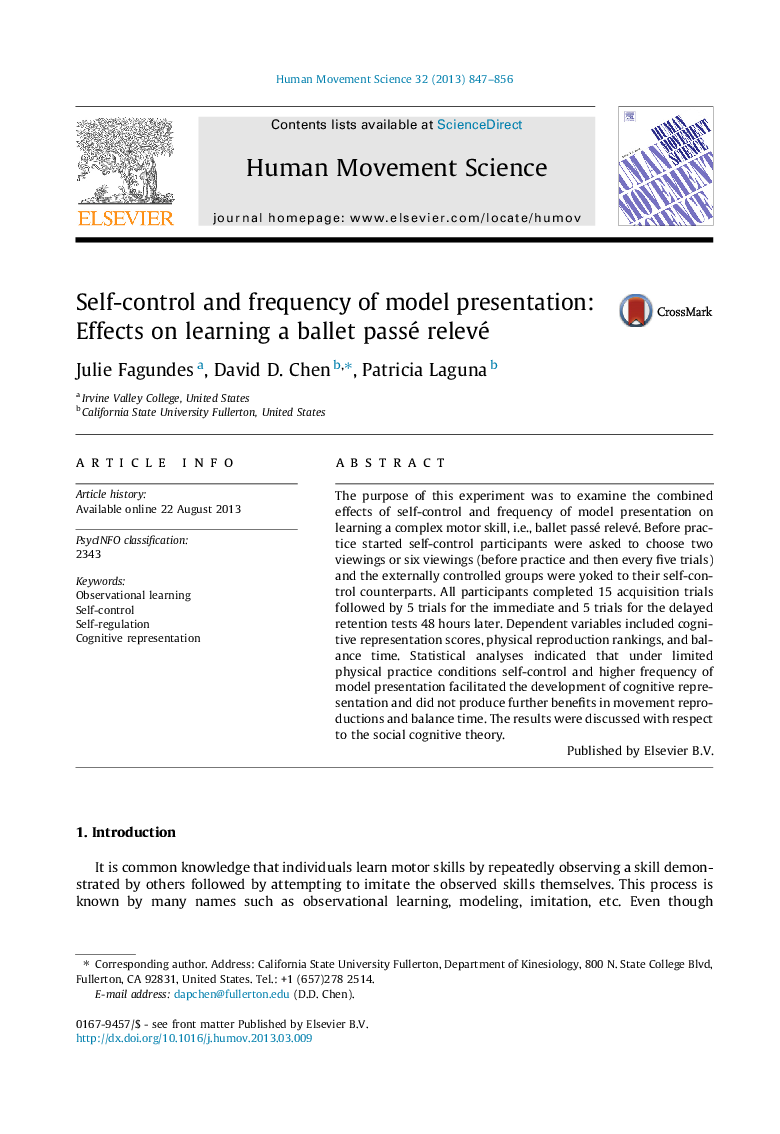| Article ID | Journal | Published Year | Pages | File Type |
|---|---|---|---|---|
| 10459209 | Human Movement Science | 2013 | 10 Pages |
Abstract
The purpose of this experiment was to examine the combined effects of self-control and frequency of model presentation on learning a complex motor skill, i.e., ballet passé relevé. Before practice started self-control participants were asked to choose two viewings or six viewings (before practice and then every five trials) and the externally controlled groups were yoked to their self-control counterparts. All participants completed 15 acquisition trials followed by 5 trials for the immediate and 5 trials for the delayed retention tests 48Â hours later. Dependent variables included cognitive representation scores, physical reproduction rankings, and balance time. Statistical analyses indicated that under limited physical practice conditions self-control and higher frequency of model presentation facilitated the development of cognitive representation and did not produce further benefits in movement reproductions and balance time. The results were discussed with respect to the social cognitive theory.
Related Topics
Life Sciences
Neuroscience
Cognitive Neuroscience
Authors
Julie Fagundes, David D. Chen, Patricia Laguna,
